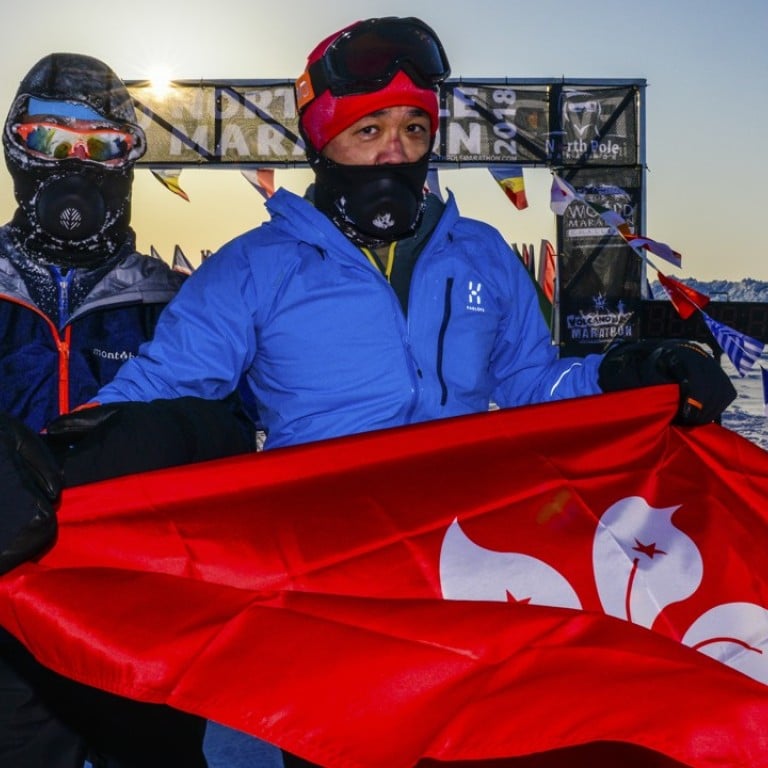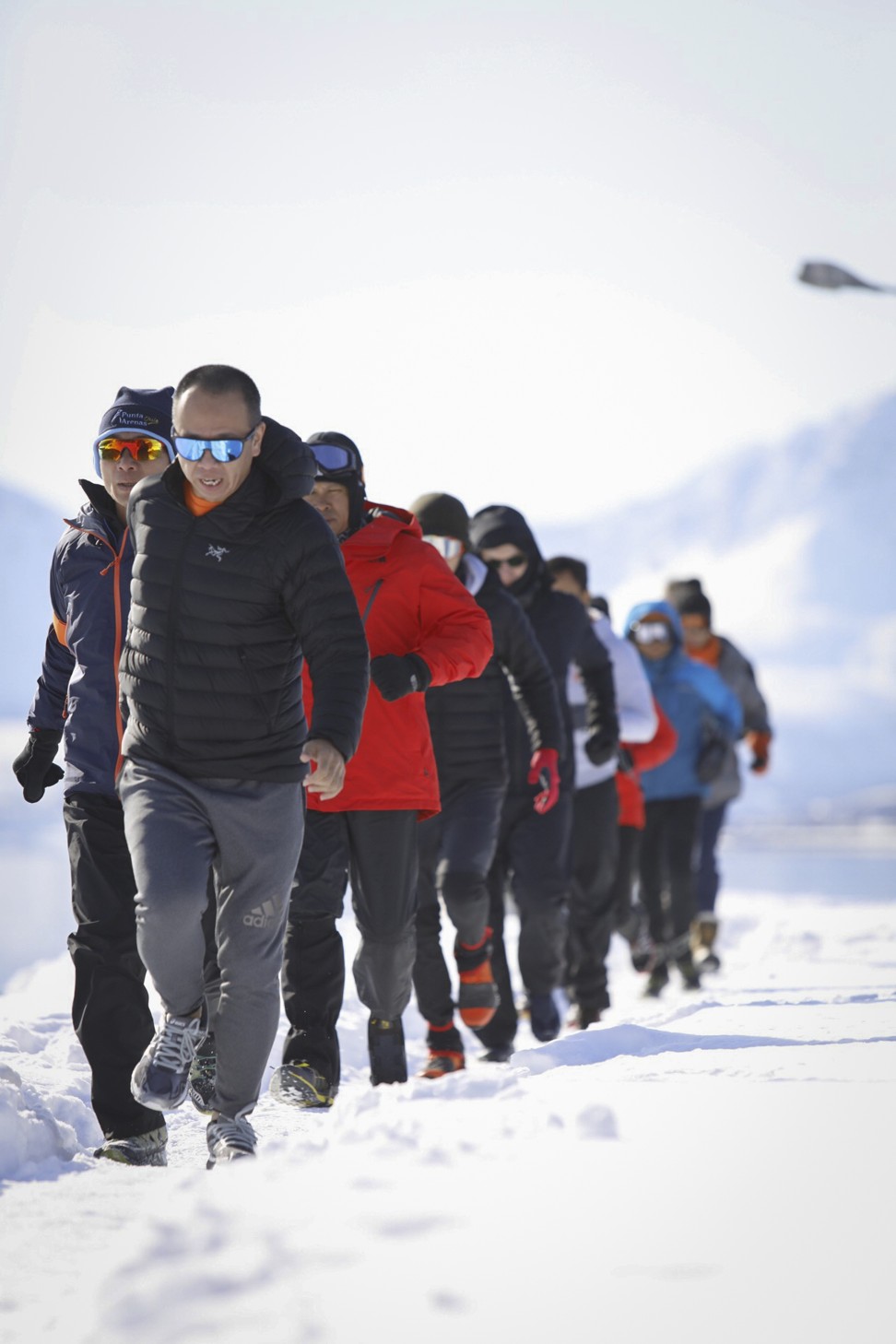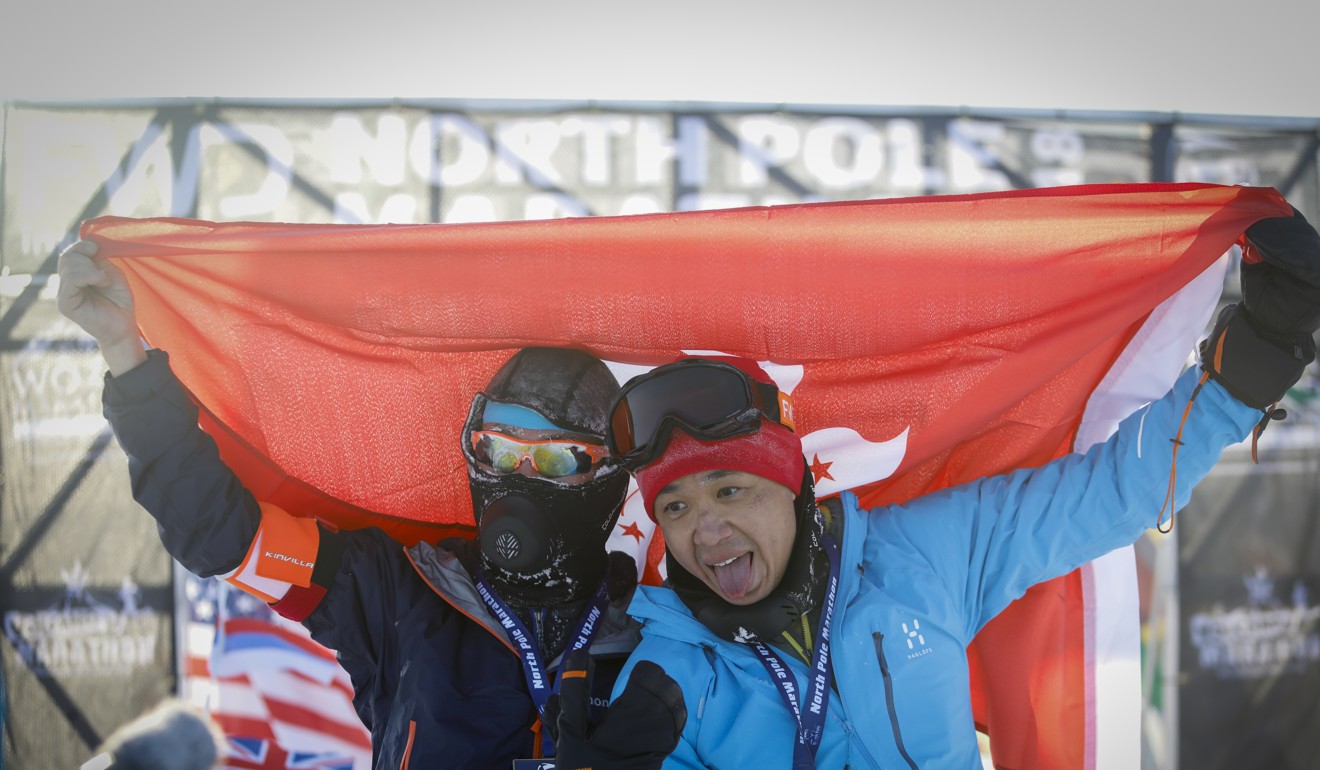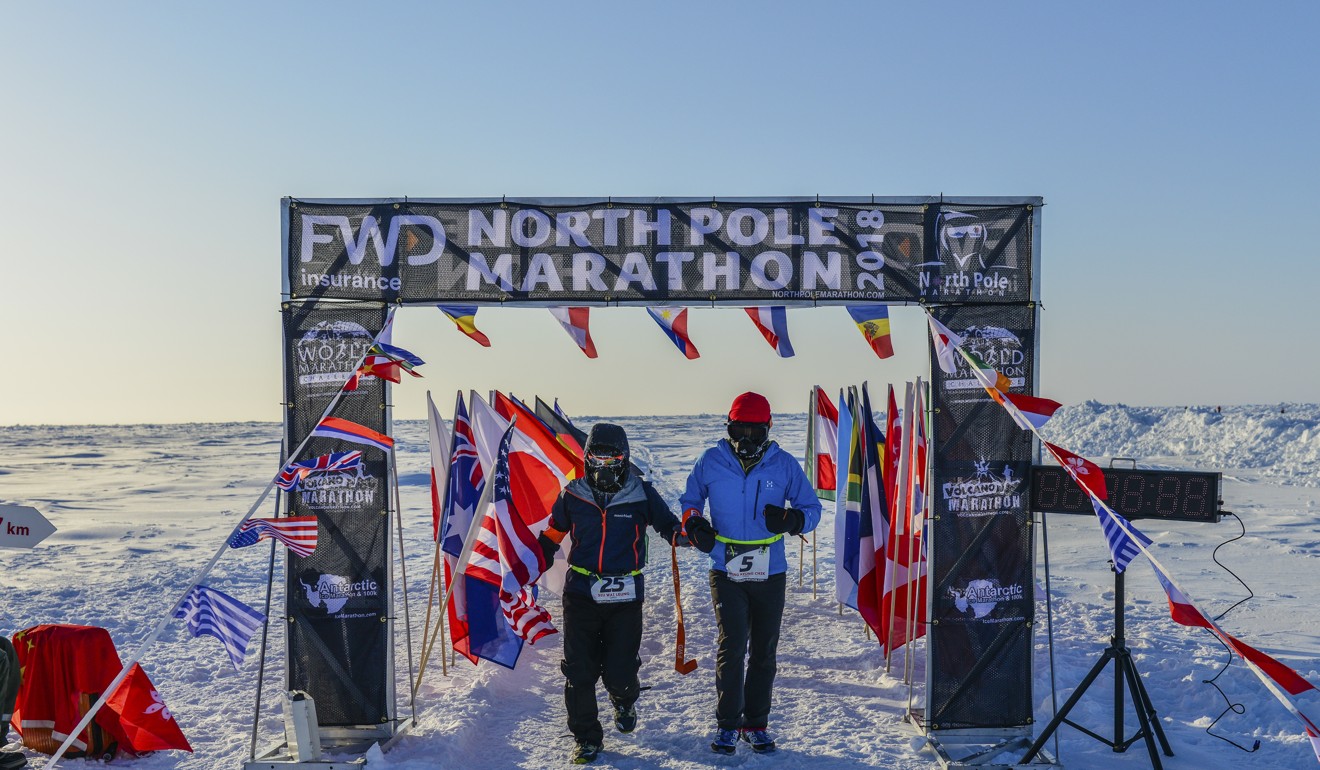
How two Hong Kong runners, one blind, ran North Pole Marathon – and only slipped over once on the ice
Businessman Andy Chik helped his friend Gary Leung become the first blind person to run both the North Pole and Antarctic marathons. Now he has some tough goals of his own to start training for
Andy Chik Wing-keung, 47, the Hong Kong regional director for insurance company FWD, originally started running to burn off the calories from the alcohol he was drinking during business dinners. More recently he returned to work after running the North Pole Marathon – 10 loops of a 4.2km (2.6 mile) Arctic sea ice track where temperatures can fall to minus 40 degrees Celsius and armed guards are positioned to keep an eye out for polar bears. And he wasn’t even doing the run for himself.
Chik and the North Pole Marathon have a bit of a history. Last year he successfully completed the race – an annual event held next to a Russian Arctic research station which can only be reached by plane – but his 2016 attempt had been frustrated by flight delays in the Arctic, and he had to return to work without getting to the race start.
The Great Wall Antarctic Marathon: penguins, icebergs and the coolest race you’ll ever run
This year he returned to the North Pole, but as a guide for blind runner Gary Leung Siu-wai. In 2014, tethered together by an elastic band for 19 days, the pair had, impressively, covered 1,000km running across Taiwan. But according to Chik, running together on Arctic snow was a lot more testing despite the much shorter distance.
“If you are guiding a blind runner on a road it is quite easy, you just say: there are steps ahead, there are stones, or there is a hole. Simple things, because the road is the same. At the North Pole every step is different. There is soft snow, hard snow and also there are different layers of it. I had to speak to Gary all the way and I lost my voice in the cold air. After 30km I did not want to talk any more.”

The mental and physical stress of the situation was exhausting for Leung, but it was Chik who was responsible for their only fall. “On the last 6km, my foot got stuck in the snow, I fell, and Gary fell on me.”
Neither of them had anticipated the difficulty of their endeavour. “On the second loop Gary said that he did not feel secure, he was too out of balance on the snow, and he said he needed me to hold his elbow – the strap did not give him enough guidance.”
It was minus 35 degrees Celsius during the race, and Chik’s fingers, now locked around Leung’s elbow, were left more exposed to the cold and wind, despite the protective cover of thick mittens. “On the last few loops the fingers in my left hand – which I was using to hold his right arm – went numb and then I lost all feeling in them. All I wanted was to finish as quickly as possible.”

Despite the discomfort, Chik says it feels great to help a person accomplish his dream. “Gary had dreamt about running at the North Pole, and had been asking me for a year to do it together because I had done it. Gary is a very tough man. He was not born blind, he lost his eyesight after 40. He is the only blind person to have run both the North Pole and Antarctic marathons, and [for the North Pole] he ran a marathon PB [personal best] of 3 hours 13 minutes.”
On average now, I think I only have time to run about 20km per week. This morning I did 5km. I had alcohol to burn from last night. My work...
While Chik is obviously proud of his own achievements – as well as the North Pole and Antarctic marathons he has completed the World Marathon Challenge (seven marathons on seven continents in seven days) and the 251km Marathon des Sables in the Sahara – he has no illusions about his ability as a runner, and does not want others to have such illusions, either.
“Why did I register for the Antarctic Marathon as my first ever race? Because there is no time limit. I thought about doing [the Hong Kong] Standard Chartered [marathon], but I knew I would not be able to do it in less than six hours,” he says.
“Marathon des Sables? I just hiked it in 2013. Running that race is hard, hiking it is not.”
Blind runner heads to North Pole Marathon to share ‘happiness and unhappiness’ with guide
“On my first training run, I tried to run from Sha Tin to Tai Po, but after 5km I had to walk. Driving back, I could not use my left leg to push the pedal, the muscles were so tired.”
He has certainly made significant headway since then, and now has some ambitious personal running goals. “Gi Ka-man [the Hong Kong record holder for half marathon] wants to do the six marathon majors – Tokyo, Berlin, London, Chicago, New York and Boston – going under three hours in all of them. I would like to do it with him, but go sub four hours in each.”

Chik knows that to hit such targets, he needs to train more systematically. He laughs when he recalls his unorthodox, solo preparation for the seven-continent World Marathon Challenge last year.
“I only started training 20 days before the start. I had never run two days back to back, and I did not ask for professional advice … so I did 10km on my first day, 10km on the second, then took a day off, then I did 20km each day on days four and five, then another day of rest, and then I did a day of 20km in the morning and 10km in the evening. And then I got injured. I had done too much.”
On my first training run, I tried to run from Sha Tin to Tai Po, but after 5km I had to walk. Driving back, I could not use my left leg to push the pedal, the muscles were so tired
He still completed the seven marathons. “I felt pain from the injury, but I also felt it was my responsibility to finish.”
Another responsibility that Chik takes seriously is the need to lead his employees to success, and he has plans to take some of his young staff to do an ultra marathon together.
“In finance, our customers have a lot of choice – they can choose you or they can choose someone else. Also, many of our customers are from different generations – they are tough, they have seen real hardship in their lives. I tell my young employees: you must become different from the rest. You must also experience real hardship, and this will make you stand out.”
‘Coldest place on Earth’ bares its teeth as blind Hongkonger forced to quit Arctic ultra marathon amid life-threatening conditions
Chik would like to ramp up his training mileage, but the reality of the Chinese financial business environment leaves little room for the niceties of a balanced lifestyle.
“On average now, I think I only have time to run about 20km per week. This morning I did 5km. I had alcohol to burn from last night. My work…,” he shakes his head, smiling.

